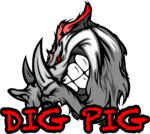Navigating the Purchase of Overseas Units for Your Business
Expanding your business by incorporating overseas units can be a promising venture, but it comes with unique challenges and considerations. These units, while not new to the market, have been established in Europe for a long time, they are shipped in crates and assembled on a North American chassis. As the North American market grows busier, many overseas manufacturers are seeking independent dealers to establish a foothold here.
Understanding the Suitability of Overseas Units
These overseas units are designed to excel in their native industries and climates. However, they may not always be best suited for North American conditions. Dealers often tweak these units to make them sellable in the local market. Unless the dealer has extensive industry experience, these modifications might be questionable, potentially affecting the unit’s performance and reliability.
Specialization in Water Recyclers
It’s important to note that most of these units are not usually a full hydrovacs units or full sewer flushing units. Overseas manufacturers specialize in water recyclers, which is what these units are primarily designed for. While water recycling is an innovative and efficient solution, it may not meet all the demands of North American hydrovac and sewer operations. The complexity of these units means that parts may not be readily available, leading to potential delays in maintenance and repairs.
Evaluating Dealer Commitment
When considering an overseas unit, ensure that the North American dealer is fully committed to supporting the product. It’s crucial that they are not merely selling these units for profit but stand by them 100%. This includes being willing to travel to your location when issues arise and providing robust support.
Parts Availability and Training
A reliable dealer should stock a large quantity of parts to avoid long waiting periods for replacements. Additionally, they should have comprehensive onsite training from the manufacturers overseas. This ensures that they understand the unique aspects of the units, including the exclusive stainless steel design used in these overseas products.
Key Considerations
- Climate Suitability: Assess whether the unit is designed to operate efficiently in North American climates. European units may require significant modifications to withstand different weather conditions.
- Dealer Expertise: Choose dealers with extensive industry experience and a proven track record in modifying and supporting these units.
- Support and Service: Ensure that the dealer offers strong after-sales support, including the ability to travel for repairs and a well-stocked inventory of parts.
- Manufacturer Training: Verify that the dealer has received thorough training from the overseas manufacturer to handle the unique components and design of these units.
Conclusion
Buying units from overseas can be a strategic move for your business, provided you take the necessary precautions. By understanding the differences in design and suitability, evaluating dealer commitment, and ensuring robust support and parts availability, you can make an informed decision that enhances your operational capabilities. Remember, while these units bring innovative solutions, their integration into your business should be carefully managed to ensure they meet the demands of the North American market effectively.
Terry Rawn
Owner, Dig Pig Products Inc
